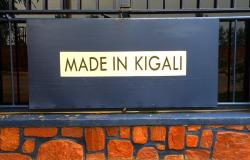Vaccine Production in Rwanda: A step Toward Vaccine Access Equity for Africa

In October 2021, Rwanda announced that it will house a vaccine manufacturing plant using the mRNA technology of the German start-up BioNTech, which co-developed the Pfizer COVID-19 vaccine. It is hoped that the construction starts no later than mid-2022. Will the plan accelerate the continent’s lackluster vaccination rate?
The first two years of the pandemic were characterized by the rapid development of vaccines, and also by stark inequity in access to these vaccines. In mid-January 2022, 3.2 billion people are still unvaccinated, 1 billion of them in Sub-Saharan Africa. Local production could correct this situation, and the Rwanda-BioNTech partnership has been presented as a way to address the call for vaccine equity, voiced by communities, health workers and global health advocates in Africa.
It also addresses Rwanda’s industrial ambitions. President Paul Kagame welcomed the partnership as “a turning point in vaccine equity”, as it aims to establish production capabilities for improving medical care in Africa. It could also help boost the national economy. According to the BTI Transformation Index’s 2020 Rwanda Country Report, the long-term strategy “Vision 2035” set the goal to transform Rwanda into a middle–income country and an East African hub with modernized agriculture, knowledge-based industry and services. However, the economic transformation remains in its early stages and a solid vaccine industry with a continental scope would strengthen this bid for modernization – and the country’s political leadership. But establishing high-quality, sustainable production is more complex than just building and staffing a production site, in a continent that still imports about 99 percent of its vaccines.
Pharmaceutical regulation
Vaccines must comply with adequate quality, safety, efficacy and performance requirements, for achieving the desired immunity without harming vaccinated people. The locally-manufactured vaccine should be submitted to the “pre-qualification” program of the World Health Organization (WHO). For COVID-19, this happens via an “Emergency Use Listing Procedure”, by which products needed for public health emergencies are rapidly assessed. By mid-January 2022, ten vaccines manufactured in high-income countries, India and China had already been “listed” via this procedure.
As a further safeguard, the regulatory authority of vaccine manufacturing countries must be able to assess and approve each and every manufactured batch. This is critical to prevent incidents that would harm individuals and fuel distrust in vaccination and in health systems overall. Rwanda is investing to upgrade the capacities of its Food and Drug Administration, but more time will be needed to achieve the maturity of a stable, well-functioning and integrated regulatory system.
Public good rather than commercial commodity
The Rwanda-BioNTech initiative has economic, political and public health drivers. In order to deliver on the promise to address the needs of African countries that were left queuing for COVID-19 vaccines, partners should prioritize public health, and treat the vaccine as a public good rather than as a commercial commodity. That would entail offering the vaccine at a fair price, based on the real development and production costs; and the partners should transparently communicate their price setting criteria, and on prices negotiated with the global vaccine sharing program COVAX and individual countries. Furthermore, the license agreement should not include any strings that exclude specific groups of countries from distribution.
To ensure a competitive price, manufacturers need large production volumes. For instance, in the 2000s, the WHO-approved generic medicines for HIV became cheaper when treatment and production were upscaled. The major purchasers for vaccine programs in Sub Saharan Africa, such as COVAX, the African Union, and bilateral donors, should promote economies of scale by committing in advance to procure the local vaccines, once they are listed by the WHO. This is also applicable to European donors, which could underscore the European Union’s vocal support of boosting local manufacturing capacity.
Looking beyond COVID-19
Clearly, COVID-19 is not the only case of an “access gap”: in 2017, about 2 billion people lacked access to essential medicines and vaccines worldwide. If the Rwandan site reaches the expected capacity of several hundred million doses of mRNA vaccine, it will make sense to also use it for other future mRNA vaccines, e.g. for malaria and tuberculosis.
Under the deal, BioNTech will transfer its know-how to the local plant, but the intellectual property rights (IPRs) remain with the German bio tech firm. Rwanda and other continental platforms won’t be able to autonomously set their future priorities, if they are dependent on voluntary transfer of technology. Consequently, to fully empower local production, all world leaders should support a reform of Intellectual property rights governance, as sketched out by the WHO Council on the Economics of Health for All: “knowledge should not be kept as privatized intellectual property under monopoly control, but considered as collective rewards from a collective value creation process, to be openly shared and exchanged”.
According to the BTI Transformation Index’s 2020 Rwanda Country Report, industry development has remained below expectations so far. Against this backdrop, the pandemic provides an opportunity to combine industrial development with public health. To make a difference, it is important that the Rwanda-BioNTech initiative keeps a balance between market and public health aims, and be accompanied by the upgrading of regulatory capacities, transparency in price settings, advanced marketing commitments, and a flexible global ecosystem for IPRs. Only if these conditions materialize will this landmark partnership be in a position to make a difference in regional and continental access to COVID19 and non-COVID19 vaccines - and to become a virtuous model for similar initiatives in the future.
Raffaella Ravinetto is a senior researcher and policy advisor at the Institute of Tropical Medicine in Antwerp, Belgium. She writes as a guest author for the Bertelsmann Stiftung’s BTI Blog.
Image: Rachel Strohm via Flickr (CC BY-ND 2.0)


